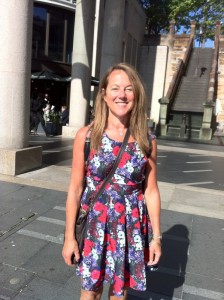Know Your Profs is an ongoing series of profiles on the instructors at Camosun College. Every issue we ask a different instructor at Camosun the same 10 questions to get to know them a little better.
Do you have an instructor that you want to see interviewed in the paper? Maybe you want to know more about one of your teachers, but you’re too busy, or shy, to ask? Email editor@nexusnewspaper.com and we’ll add your instructor to our list of teachers to talk to.
This issue we talked to Camosun Mental Health and Addiction prof Alison Parker about constant learning, late-night email sessions, and conflict in the classroom.
1: What do you teach and how long have you been at Camosun?
I teach a variety of different courses in our Mental Health and Addiction programs (certificate and post-degree diploma programs). I’ve been here for seven years.
2: What do you personally get out of teaching?
I love the connection with students. We have an incredible bunch of interesting and engaged students. I always have to be on my toes. Teaching requires that I am constantly learning and upgrading my knowledge and acquiring new skills. I love the challenge.
3: What’s one thing you wish your students knew about you?
I have a lot of education behind me, but it’s never been easy for me. I’ve worked really hard.
4: What’s one thing you wish they didn’t know about you?
I wish they couldn’t see the time of day (and night!) I respond to their emails and mark their papers. They must think I am a workaholic.
5: What’s the best thing that’s happened to you as a teacher here?
I love meeting the graduates of our programs in the community and feel especially proud of students who come back to lecture for us.

6: What’s the worst thing that’s ever happened to you as a teacher here?
The difficult times are when students become embroiled in conflict with each other. The class can become tense and it can be tricky to negotiate our way out of it.
7: What do you see in the future of postsecondary education?
The business model that has shaped and controlled our educational institutions over the last 40 years needs to be questioned. The growths in administration, student debt, class size, and limited security for a substantial number of instructors are some issues I’d like to see addressed in the future.
8: What do you do to relax on the weekends?
I have some wonderful routines each weekend, including running with a dear friend, meeting friends for coffee, and spending some time relaxing with my husband. When the sun is out I’m usually on the beach reading and swimming.
9: What’s your favourite meal?
Anything that someone else, especially my kids, cooks for me.
10: What’s your biggest pet peeve?
Being told I can’t do something for some bureaucratic reason that makes no sense, is not effective, and stifles creativity and effective problem solving.
